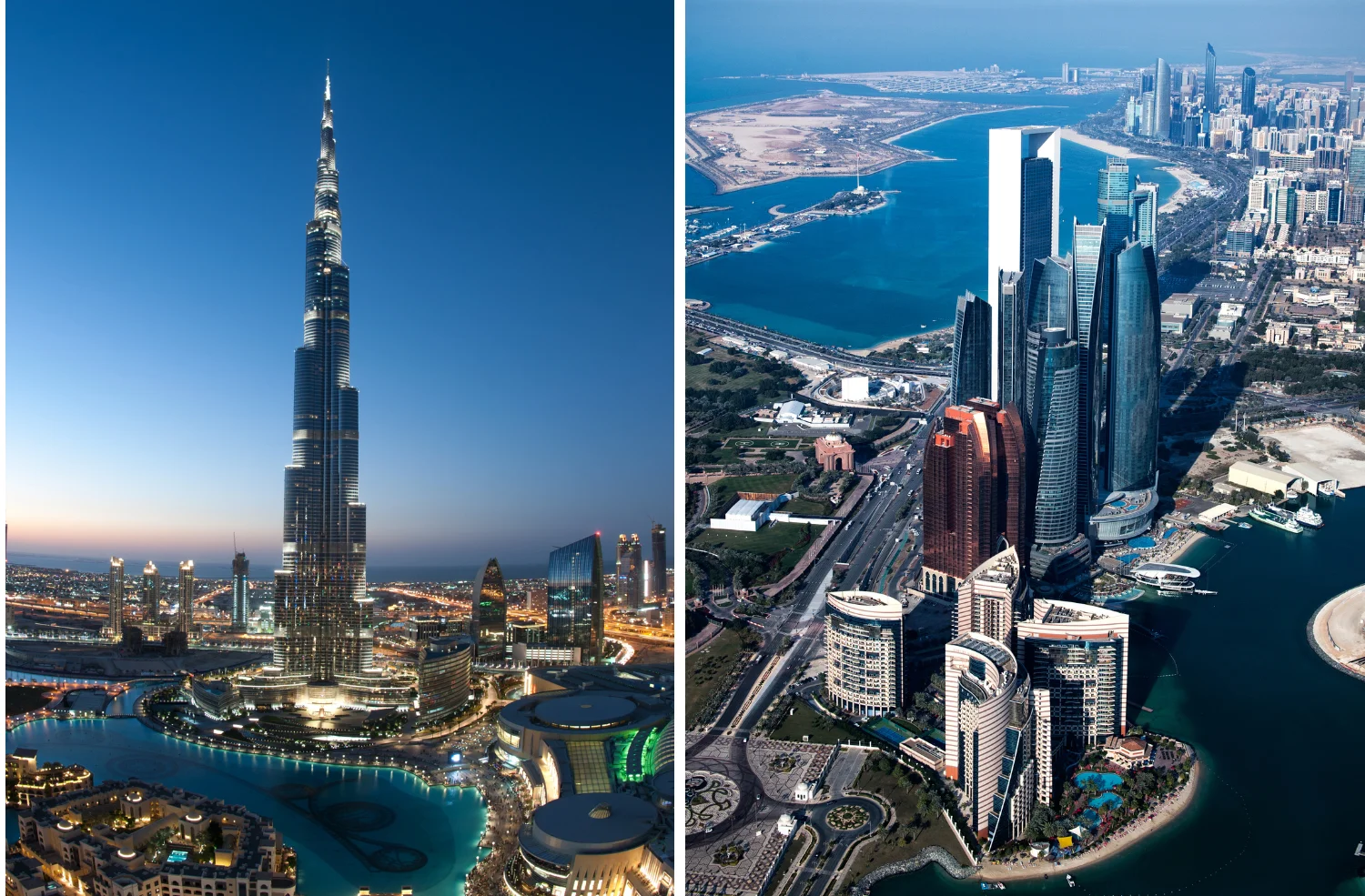Now Reading: 6 Tax Deductions for Smart Building Upgrades in 2025
-
01
6 Tax Deductions for Smart Building Upgrades in 2025
6 Tax Deductions for Smart Building Upgrades in 2025

Table of Contents
The UAE’s real estate market, valued at AED 958 billion in 2024 with 23.9% year-on-year growth, is a hub for smart building innovation, driven by initiatives like Dubai’s Smart City and UAE Vision 2030, per gtlaw.com. Smart buildings, integrating IoT, AI, and energy-efficient systems, reduce operating costs by 20–30%, per bhomes.com.
Developers and investors face a 9% corporate tax (CT) introduced in June 2023 under Federal Decree-Law No. 47, with non-compliance fines up to AED 500,000, per jaxaauditors.com. This article outlines six tax deductions UAE developers can leverage for smart building upgrades in 2025, with U.S. investor considerations, using web insights.
UAE Tax Framework for Smart Building Upgrades

Smart building upgrades, such as automation systems and energy-efficient technologies, qualify for tax deductions under UAE’s CT regime, per czta.ae:
- Corporate Tax: 9% on profits above AED 375,000 (~$102,000); 0% for Qualifying Free Zone Persons (QFZPs) or small businesses with revenue below AED 3 million until December 31, 2026, per taxsummaries.pwc.com.
- VAT: 5% on commercial transactions; residential sales/long-term leases are zero-rated or exempt, per shuraatax.com.
- Deductions: Expenses for smart upgrades (e.g., installation, maintenance) are deductible from taxable income, per proactfs.com.
- Compliance: Federal Tax Authority (FTA) registration, seven-year record retention, and electronic filings via EmaraTax are mandatory, per hawksford.com.
6 Tax Deductions for Smart Building Upgrades in 2025
1. IoT and Automation System Installation Costs
Expenses for installing IoT systems, such as smart thermostats, security sensors, and building management systems (BMS), are fully deductible from taxable income, per farahatco.com. These systems optimize energy and operational efficiency.
- Deduction Impact: A AED 1 million (~$272,000) IoT installation on a AED 50 million project reduces taxable income by AED 1 million, saving AED 90,000 CT (9%), boosting yield by 0.2%.
- U.S. Consideration: Deduct on Schedule E; align with IRS Section 179 for equipment, per irs.gov.
- Action: Retain installation invoices; certify systems with DEWA; file deductions with FTA, per finanshels.com.
2. Energy-Efficient Lighting and HVAC Expenses
Costs for upgrading to LED lighting, smart HVAC, and variable refrigerant flow (VRF) systems, which cut energy use by 25–40%, are deductible, per ae.insightss.co. These enhance building sustainability.
- Deduction Impact: A AED 800,000 (~$218,000) HVAC upgrade on a AED 40 million project saves AED 72,000 CT, preserving 8% yield.
- U.S. Consideration: Claim U.S. energy-efficient deductions (Section 179D, up to $1.88/sq.ft.); report on Form 1120-F, per irs.gov.
- Action: Document expenses; verify efficiency with EmiratesGBC; submit to FTA, per hawksford.com.
3. Smart Metering and Monitoring Equipment Costs
Expenses for smart meters and energy monitoring systems, which provide real-time consumption data, are deductible, per skylineholding.com. These systems support Dubai’s Demand Side Management Strategy.
- Deduction Impact: A AED 500,000 (~$136,000) smart metering system on a AED 30 million project saves AED 45,000 CT, enhancing yield by 0.15%.
- U.S. Consideration: Deduct as business expense on Schedule E; no direct U.S. equivalent, per irs.gov.
- Action: Retain purchase records; certify with DEWA; file deductions via EmaraTax, per emirabiz.com.
4. Software and Licensing Fees for Smart Systems

Costs for software licenses, cloud platforms, and AI-driven analytics for smart building management are deductible, per proactfs.com. These enable predictive maintenance and energy optimization.
- Deduction Impact: A AED 600,000 (~$163,000) software investment on a AED 25 million project saves AED 54,000 CT, maintaining 8% yield.
- U.S. Consideration: Amortize software costs under IRS Section 197; report on Form 4562, per irs.gov.
- Action: Track licensing fees; document functionality; file with FTA, per farahatco.com.
5. Maintenance and Training Costs for Smart Technologies
Ongoing maintenance and staff training for smart systems, such as BMS or IoT platforms, are deductible, per czta.ae. These ensure long-term efficiency and compliance with green standards.
- Deduction Impact: A AED 400,000 (~$109,000) annual maintenance cost on a AED 20 million project saves AED 36,000 CT, preserving 8% yield.
- U.S. Consideration: Deduct as operating expense on Schedule E; align with IRS rules, per irs.gov.
- Action: Retain service contracts; document training; submit deductions to FTA, per finanshels.com.
6. Green Retrofit Costs for Existing Buildings
Expenses for retrofitting existing buildings with smart technologies (e.g., solar-integrated facades, smart windows) are deductible, supporting UAE’s retrofit initiatives, per 100keys.ae.
- Deduction Impact: A AED 1.5 million (~$408,000) retrofit on a AED 60 million property saves AED 135,000 CT, boosting yield by 0.2%.
- U.S. Consideration: Claim U.S. retrofit deductions (Section 179D); report on Form 1120-F, per irs.gov.
- Action: Document retrofit costs; certify with municipality; file with FTA, per hawksford.com.
Quantitative Impact on Returns
Consider a AED 50 million smart building project yielding 8% (AED 4 million annually):
- IoT Installation: AED 90,000 CT savings boosts yield to 8.2%.
- Energy-Efficient Upgrades: AED 72,000 CT savings preserves 8% yield.
- Green Retrofit: AED 135,000 CT savings increases yield to 8.3%.
- Non-Deducted Case: 9% CT (AED 360,000), 5% VAT (AED 200,000), and AED 50,000 fines reduce yield to 7.2%.
Key Considerations for U.S. Investors
- Risks:
- Non-Compliance: Fines up to AED 500,000 for tax violations, per jaxaauditors.com.
- Oversupply: 14,000 units planned for 2026–2029 may soften yields by 0.5–1%, per omniacapitalgroup.com.
- Costs: Smart upgrade costs AED 500,000–2 million; compliance costs AED 10,000–20,000 annually, per hausandhaus.com.
- Tax Compliance: IRS requires Form 1120-F, Form 4562, Form 179D, Form 8938, and FinCEN Form 114, per irs.gov.
- Regulatory Compliance: DLD mandates smart certifications; emirate-specific fees (e.g., Dubai’s 4% transfer fee) apply, per crcproperty.com.
- Currency Stability: AED pegged at 1 USD = 3.67 minimizes risk, per kaizenams.com.
Conclusion
In 2025, UAE smart building developers can leverage six tax deductions—IoT installations, energy-efficient systems, smart metering, software fees, maintenance, and retrofits—to optimize 6–10% yields in a AED 958 billion market. U.S. investors, aligning IRS and FTA compliance, can maximize returns by partnering with firms like Hawksford or Farahat & Co. for strategic tax planning. smart Building
read more: Green Buildings in UAE: 6 Tax Credits Developers Can Leverage in 2025





















